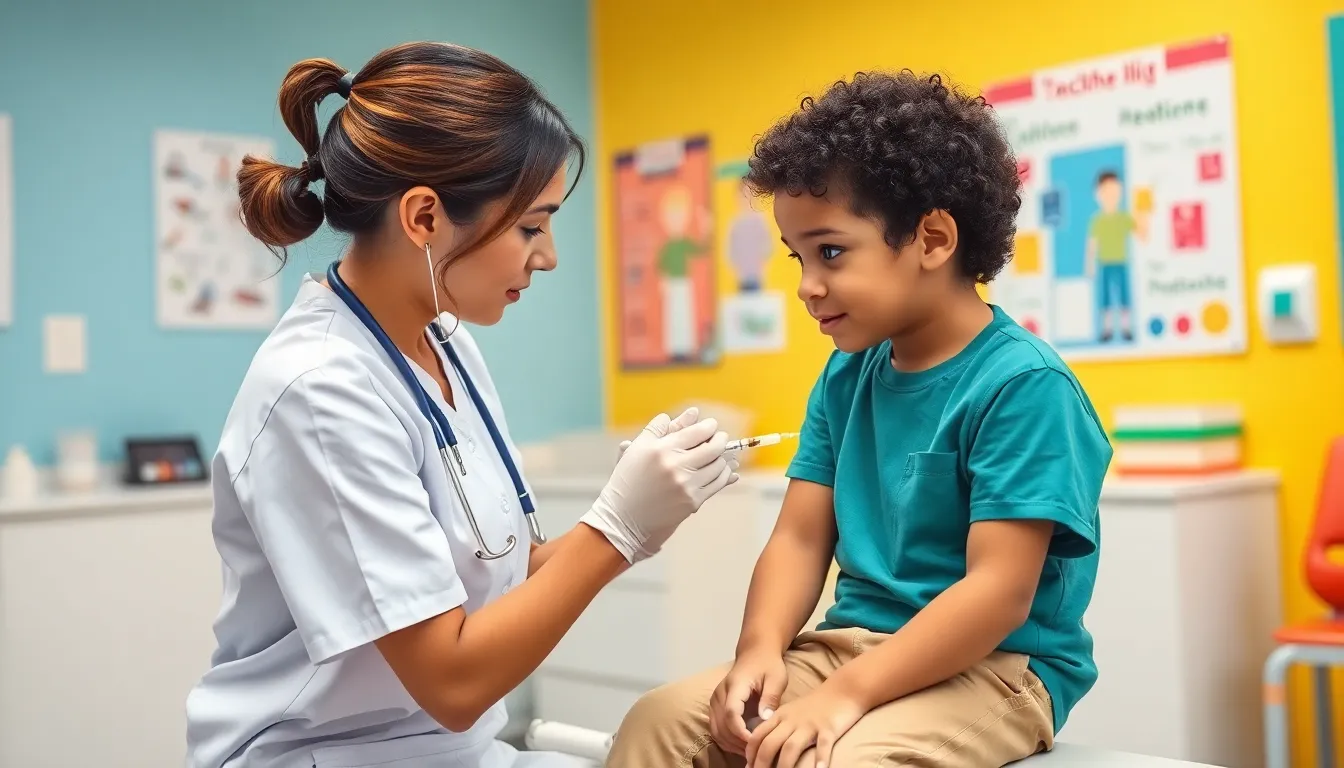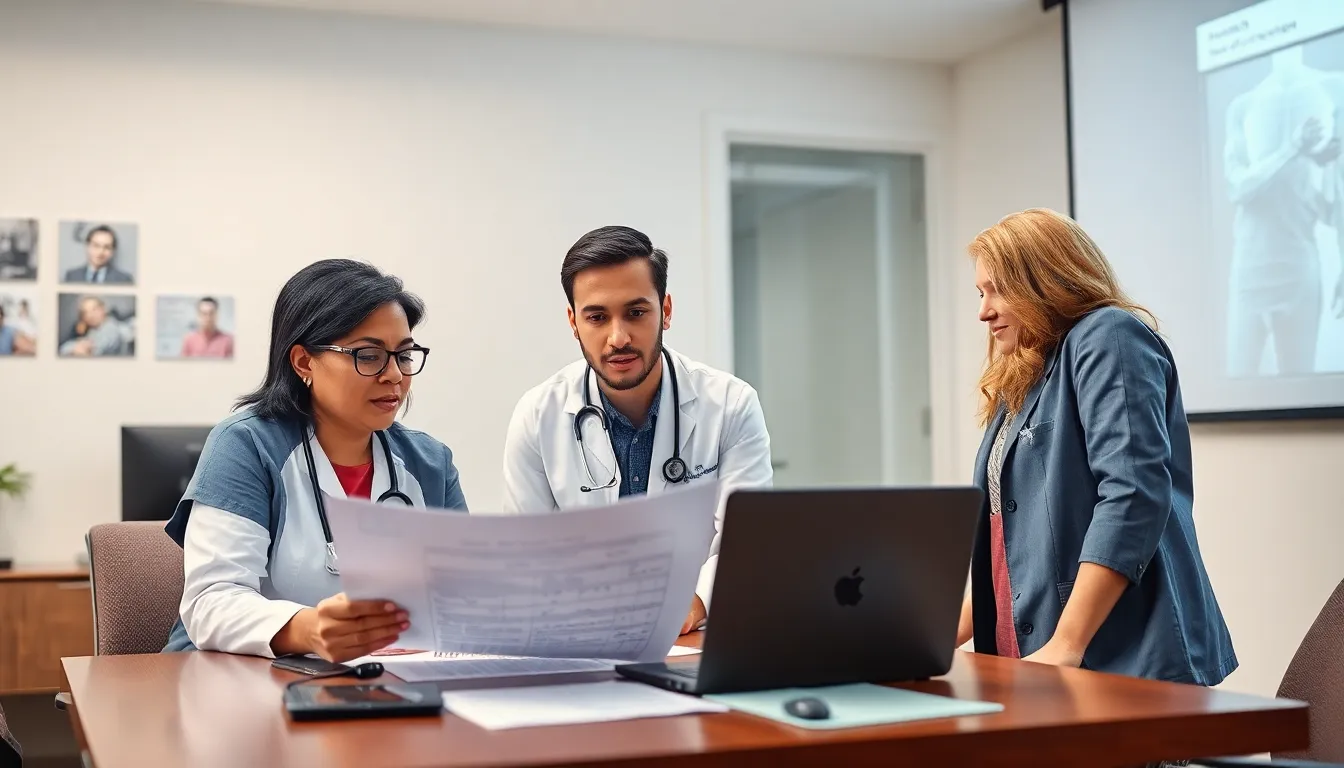When it comes to maintaining good health, preventive care is key. One procedure that often sparks debate is the colonoscopy. Is it truly a preventive measure or just another medical routine? I’ve found that understanding its role in early detection can make all the difference in our approach to health.
Colonoscopy isn’t just about screening for colon cancer; it’s also about identifying potential issues before they escalate. With rising awareness about colorectal health, many people are left wondering if this procedure is a necessary step in their preventive care regimen. Let’s dive into what makes colonoscopy a vital tool in proactive health management.
Table of Contents
ToggleKey Takeaways
- Colonoscopy as Preventive Care: Colonoscopy is vital for early detection of colorectal issues, including cancer, making it an essential preventive care procedure.
- Screening Recommendations: The American Cancer Society advises starting regular screenings at age 45, with earlier screening for those at higher risk due to family history or other factors.
- Benefits of Early Detection: Identifying precancerous polyps through colonoscopy can reduce colon cancer risk by up to 68%, highlighting its role in enhancing treatment outcomes.
- Identification of Other Health Issues: Besides cancer, colonoscopy can also detect conditions like inflammatory bowel disease and diverticulosis, contributing to improved overall health management.
- Awareness of Risks: While generally safe, potential risks include mild discomfort and rare complications like bleeding or infection; understanding these helps patients make informed choices.
- Personalized Screening Schedules: Individual risk factors, such as family history and lifestyle choices, should be considered when planning a colonoscopy schedule with healthcare providers.
Understanding Preventive Care
Preventive care encompasses services that aim to protect and improve health before illnesses occur. These services include regular check-ups, screenings, and immunizations. Early detection of diseases significantly increases treatment efficacy and health outcomes.
Colonoscopy plays a crucial role in preventive care, particularly for colorectal health. It doesn’t just screen for colon cancer; it can also identify polyps and other potential issues. Addressing these conditions early allows for timely intervention and reduces complications.
Preventive care guidelines recommend that individuals start regular screenings for colorectal cancer at age 45. Individuals with a family history of colorectal cancer, certain genetic conditions, or other risk factors may require earlier screenings. Following these guidelines ensures proactive health management and minimizes the risk of advanced disease.
What Is Colonoscopy?
Colonoscopy is a medical procedure used to examine the inner lining of the colon and rectum. This examination helps detect abnormalities and facilitates early intervention for various health issues.
Purpose of Colonoscopy
Colonoscopy primarily serves to screen for colon cancer, which ranks as the second leading cause of cancer-related deaths in the U.S. It identifies precancerous polyps, allowing for their removal before they develop into cancer. Additionally, colonoscopy evaluates symptoms such as unexplained abdominal pain, rectal bleeding, and changes in bowel habits. Early detection through colonoscopy significantly enhances treatment outcomes and may reduce long-term health risks.
How It Works
During a colonoscopy, a flexible tube with a camera, known as a colonoscope, is inserted into the rectum. The physician carefully guides the colonoscope through the entire colon while monitoring images in real-time. The procedure usually takes around 30 to 60 minutes. Patients typically receive sedation for comfort, allowing for a relaxed examination experience. If necessary, biopsies can be taken or polyps removed during the colonoscopy, further aiding in proactive health management.
Benefits of Colonoscopy as Preventive Care
Colonoscopy offers significant advantages as a form of preventive care. It plays a critical role in early cancer detection and addressing other colorectal health concerns, leading to better health outcomes.
Early Detection of Cancer
Early detection of cancer through colonoscopy significantly increases survival rates. The procedure identifies precancerous polyps in the colon, which, if not removed, may develop into cancer over time. Research indicates that removing these polyps can reduce the risk of colon cancer by up to 68%. Starting regular screenings at age 45, or earlier for those with a family history, allows for prompt intervention. The American Cancer Society states that this proactive approach has the potential to prevent up to 90% of colon cancer cases with appropriate screening and removal of polyps.
Prevention of Other Colorectal Issues
Colonoscopy also assists in the prevention of various other colorectal issues. The procedure can detect inflammatory bowel diseases (IBD), diverticulosis, and colorectal bleeding, which may lead to complications if left untreated. By diagnosing these conditions early, I can manage symptoms effectively and reduce the likelihood of severe complications. Detection of IBD early on enables timely treatment, which can prevent further damage to the colon. Regular colonoscopy screenings empower me to take control of my colorectal health, decreasing the risk of serious diseases and improving overall well-being.
Guidelines and Recommendations
The guidelines and recommendations for colonoscopy as preventive care are crucial for understanding when to begin screenings and how often to undergo them. Recognizing individual risk factors also plays a significant role in determining the appropriate course of action for colorectal health.
Age and Frequency Recommendations
The American Cancer Society recommends that average-risk individuals start regular colorectal cancer screenings at age 45. Screenings can occur every 10 years if a colonoscopy is performed and results are normal. Those with a family history or specific health issues may require earlier and more frequent screenings. For instance, individuals with a first-degree relative diagnosed with colon cancer before age 60 or more than one first-degree relative at any age should begin screenings at age 40, or 10 years before the age of the youngest relative diagnosed. Regular screenings enable the early detection of abnormalities, significantly impacting health outcomes.
Risk Factors to Consider
Several risk factors influence the necessity and timing of colonoscopy. Family history of colorectal cancer, personal history of polyps, inflammatory bowel disease, or certain genetic syndromes increases risk. Individuals with these factors should consult with their healthcare provider to establish a tailored screening schedule. Lifestyle factors, such as diet, exercise, smoking, and alcohol consumption, also contribute to colorectal cancer risk. Maintaining awareness of these elements supports proactive health management and informed decision-making regarding preventive care.
Potential Risks and Considerations
Colonoscopy, while valuable, carries certain risks that individuals must weigh. Understanding the potential side effects and circumstances warranting avoidance helps in making informed decisions about this procedure.
Common Side Effects
Common side effects of colonoscopy may include mild cramping, bloating, and some gas after the procedure. Most individuals experience these symptoms without complications. Rarely, adverse effects such as bleeding or infection can occur. Bleeding might happen if polyps are removed or biopsies are taken. Infection, though uncommon, could arise due to the invasive nature of the procedure. Serious complications occur in 1 in 1,000 to 3,000 cases, underscoring the relative safety of colonoscopy for most patients.
When to Avoid Colonoscopy
Certain conditions may justify postponing a colonoscopy. Individuals with severe heart or lung disease may face heightened risks, so consultation with a physician is crucial. Active gastrointestinal conditions—such as severe diarrhea, inflammation, or bowel obstruction—can complicate the procedure and should prompt delays. Pregnancy may also warrant avoidance, depending on medical advice. Following comprehensive evaluations, healthcare providers offer tailored recommendations to ensure patient safety.
Colonoscopy plays a crucial role in preventive care by enabling early detection of colorectal issues. It’s not just about screening for cancer; it helps identify polyps and other abnormalities that could lead to serious health problems. By starting screenings at the recommended age and considering individual risk factors, I can take proactive steps toward better health. The benefits of this procedure far outweigh the risks for most people, making it an essential part of my health management strategy. Prioritizing colon health helps ensure I stay ahead of potential issues, ultimately leading to improved well-being and peace of mind.




